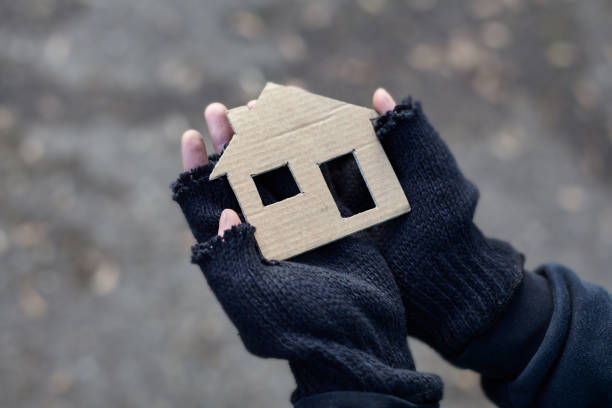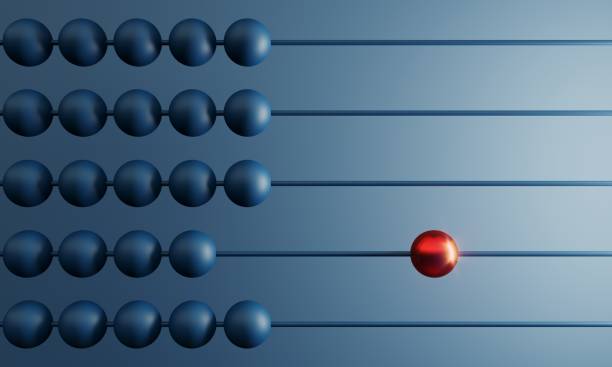What Is a Mortgage? Home Loan Basic for Beginners
Becoming a homeowner can be very interesting and a dream comes true. By taking the bold step of obtaining a mortgage loan, you would be headed for homeownership. But What Is a Mortgage? Irrespective of the frequent use of the word, many still don’t know what is a mortgage.
Before buying a house, you should know the basics of a mortgage, the different loan types, terminologies used in the banking sector, and the steps to get a mortgage.
It is entirely okay if you do not know all, but some of these; in the least, you should have an idea of mortgage plans before purchasing a house.
So, what is a Mortgage? In this article, you would find a very simple definition of a mortgage, loan basics, and how you can get a new house through a mortgage.
Hold up, we cannot be discussing mortgage jargon without having an ideal customer for a mortgage.
Who Gets A Mortgage?
Anyone who plans on buying a home, but does not have the full cost of the apartment.
Now, if this is you, let’s start with why you need a mortgage. Actually, the number one tip you need to know on mortgage basics.
What Is A Mortgage And Why Do I Need A Mortgage?
You might be very wealthy whether with a ton of money in your bank account or assets that you could fairly trade on, but let’s face the facts, most people cannot easily buy a home upfront as an average citizen.
From the view of an average income earner, you would need financiers like friends and families to support your “Home purchase plan”.
Well, that may not be too easy as it seems, besides, there’s an extent to the support they can give you. That is when you start considering other options.
Let’s face another hard reality; Who can help me buy a home? How would I convince my housing agent that I can complete down payments for the house in six months?
That’s quite tough, so what other options do I have? Lucky you landed on this page and you’re gradually getting to the end of your seamless searches.
Banks, cooperative lenders, and the government can help you with a mortgage loan. This is with a condition that you would make monthly down payments each month.
Till you have completed your payments, you are not yet officially a homeowner. That sucks, yeah, but it’s a better option to secure your future home.
Now you know why you need a mortgage, let’s dive into what the word mortgage means.
Definition Of A Mortgage
According to the Wiktionary,
“A special form of secured loan where the purpose of the loan must be specified to the lender, to purchase assets that must be fixed (not movable) property, such as a house or piece of farmland. The assets are registered as the legal property of the borrower but the lender can seize them and dispose of o them if they are not satisfied with how the repayment of the loan is conducted by the borrower. Once the loan is fully repaid, the lender loses this right of seizure, and the assets are then deemed to be unencumbered.”
That’s pretty long, and not quite straight to the point for a newbie. Let’s help you with a simple definition of a mortgage.
What is a mortgage? A mortgage or a mortgage loan refers to an agreement between a borrower and a lender to buy or refinance a home. You as an aspiring homeowner are the borrower, while the mortgage lender or mortgage provider is the financial institution that offers the loan and makes profits from the interests tagged to the loan.
Most of us do not read the terms and conditions of use on our weekly purchases. Anyways, never try this with your mortgage agreement.
One general point in most mortgage and tenancy agreements is that the lenders or original owners of the house you intend to buy can repossess their property if at all you fail to meet the payment terms of your mortgage or loan. PS. These down payments include the borrowed principal + interest.
What Is A Down Payment?
Now that you have a grasp of what a mortgage is, let’s delve deeper. Down Payment on a home is the first payment that the borrower (you) makes to the lender, to secure temporary ownership of the house.
The housing or real estate agent would come up with the minimum amount that you would pay as down payments from the total cost of the home. Most times, if not all times, you have to make these down payments to guarantee that you can complete payments for the home over time.
What Is The Difference Between A Loan And A Mortgage?
In trying to explain “what is a mortgage”, we used the term “borrower and lender” which is not alien to Loans, so what’s the difference between a loan and a mortgage you might ask.
For a loan, the lender gives you a sum of money with trust that you would pay back later (at an agreed time or intervals)
A mortgage on the other hand is similar to a hire purchase, where you make part payments until you’ve cleared all your debts.
Since both involve money payments, the mortgage is a kind of loan. That is why some people refer to mortgages as mortgage loans.
Also, in normal bank loans, the collateral can be a house, car, or other assets, while for a mortgage, the asset is the house in question.
With all that cleared, let’s have a proper understanding of the basics of home loans.
How Does A Mortgage Work?
You can as well guess that right if you read the heading on “what is a mortgage.”
Since we’re taking off loan basics, you should get these things right, so let’s highlight them again.
In the mortgage agreement, the lender can be the original homeowner, a financial institution, or a real estate company that purchased the house.
You, as the second homeowner, pay back the mortgage lender with the agreed interest. Some mortgage payments can last between 2 to 5 years, while others between 15 to 30 years. The length of time for mortgage payments would be agreed upon between the two parties, you and the lender.
Interests compound over the years and would be lesser if you pay up as soon as you can.
A foreclosure on the mortgage agreement is when the borrower breaks the agreement, by not making payments as at when due.
To simplify this, imagine a case scenario of when a company goes bankrupt. They are made to forfeit ownership of the company to the highest shareholder[s].
Types of Mortgage Loans
You can choose your best-fit mortgage plans from as many different options through government and private lenders. They are categorized into conforming loans and non-conforming loans.
Conventional Conforming Loans
A conventional loan is one not backed up by the federal government. Conventional loans as conforming loans mean that the mortgage lender is willing to make the loan without involving the government but with agreements defined by government-sponsored enterprises.
Under this type of loan, you can make a down payment of 3%, but since the payment is less than 20%, you will have to pay Private Mortgage Insurance (PMI) each month. This protects your lender in case you fail to pay your mortgage.
Non-Conforming Loans
The Government-Insured mortgages include FHA loans, USDA loans, and VA loans; Jumbo mortgages are an example of the conventional non-conforming mortgage.
- FHA Loans
These are United States Federal Housing Administration loans. Here, if you don’t pay your loan, the FHA repays the lenders. Down payments are as low as 3.5% with the FHA loans.
FHA loans are for people, especially older persons, who can’t afford large down payments or with a credit score of 580.
- USDA Loans
USDA, short for US Department of Agriculture, offers special loans to homebuyers in rural areas; technically, the outskirts of the suburbs.
These borrowers include persons who earn below 115% of the average income but wish to become homebuyers.
They are eligible for loans with no down payment and even lower guarantee fees. Imagine fees less than the insurance premium for FHA loans.
- VA Loans
The Department of Veterans Affairs (VA), offers loans with zero down payment and no private mortgage insurance, to active members of the US armed forces, members of the National Guard, qualified reservists, veterans, and their spouses.
- Jumbo Mortgages
This loan type is a conventional non-conforming mortgage.
The loan limit for conforming loans in the U.S. is $647,200 to $970,800. In cases where you need financing higher than these limits, you have to apply for a jumbo mortgage.
The down payments on jumbo loans are at least 20% + lots of documentation and approval signage.
Is There A Limit To The Number Of Mortgages You Can Have?
You can have as many mortgages as you wish unless your lender does not permit so.
Conclusion: What Is A Mortgage?
Before you can get a mortgage, you would need to be preapproved or be ready to show evidence of income.
Your proof of funds allows you to be taken seriously by your real estate agents.




![How Much Do Mortgage Brokers Make in [year]? How Much Do Mortgage Brokers Make](https://eucarlrealty.com/wp-content/uploads/2022/05/How-Much-Do-Mortgage-Brokers-Make.jpg)